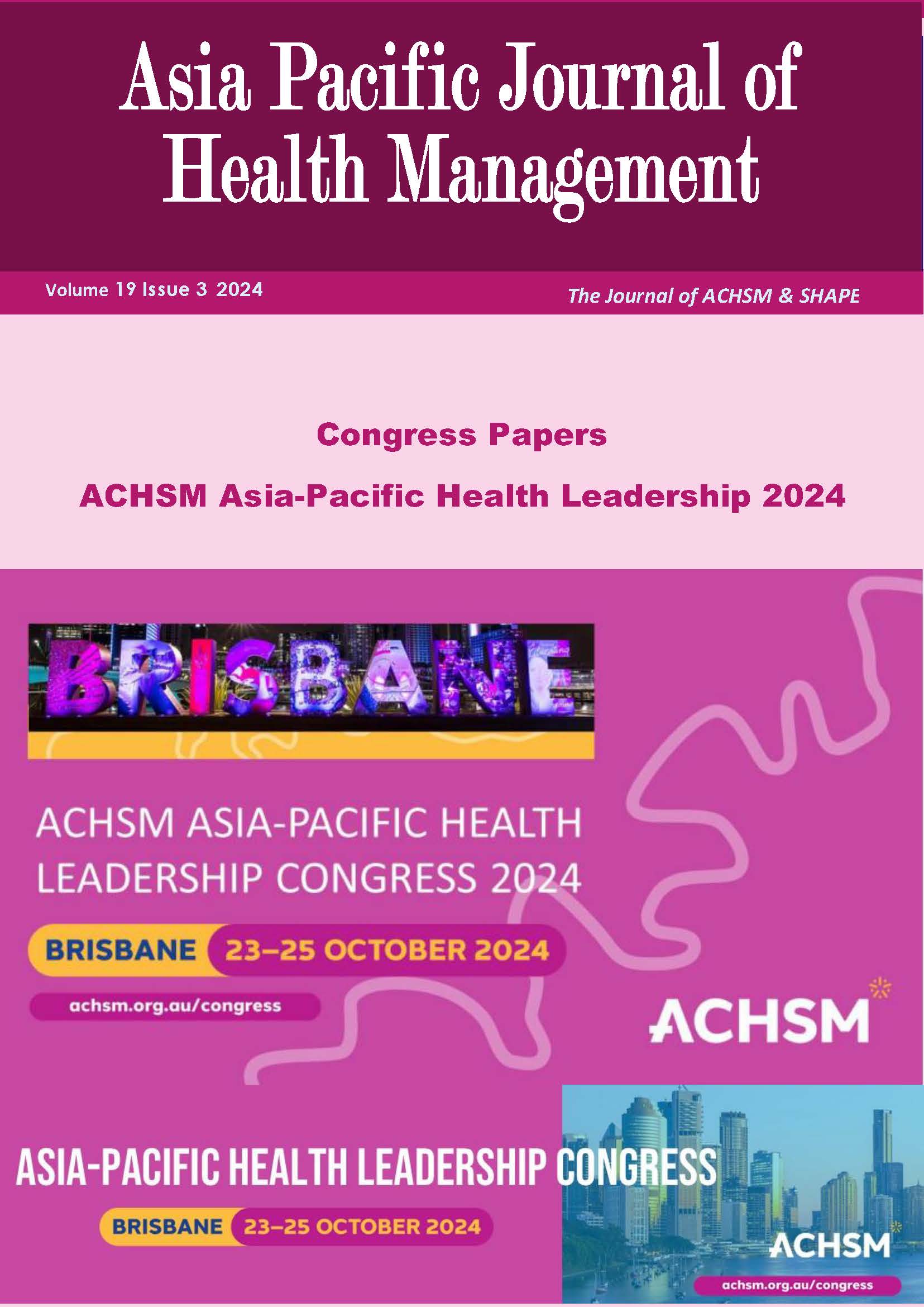Exploring Clinician Barriers and Enablers in Referring Patients to a Virtual Hospital for Acute Care - ACHSM Asia-Pacific Health Leadership Congress in Brisbane 2024
Main Article Content
Abstract
Background: Virtual hospitals offer a promising solution to alleviate pressures on traditional healthcare systems by providing acute care in patients' homes. Despite the implementation of a virtual hospital model in South Australia, referral rates remain below expectations.
Aim: To explore clinician attitudes, beliefs, barriers, and enablers influencing referrals to a virtual hospital for acute care.
Methods: A qualitative exploratory study was conducted using semi-structured interviews with nine clinicians who had experience referring patients to the virtual hospital. Data were analysed thematically using a grounded theory approach.
Results: Four key themes emerged: (1) Complexity of the healthcare ecosystem leading to duplication and navigation challenges; (2) Ambiguity in patient selection criteria causing uncertainty in referrals; (3) Higher social complexity and non-medical care needs acting as barriers; (4) Interoperability issues and the need for effective change management.
Conclusions: Addressing the identified barriers through refining referral pathways, clarifying eligibility criteria, enhancing support for patients with complex needs, and improving system interoperability could increase referral rates to the virtual hospital. Engaging clinicians in the co-design of virtual care models is essential for successful implementation.
Article Details

This work is licensed under a Creative Commons Attribution-NonCommercial 4.0 International License.

